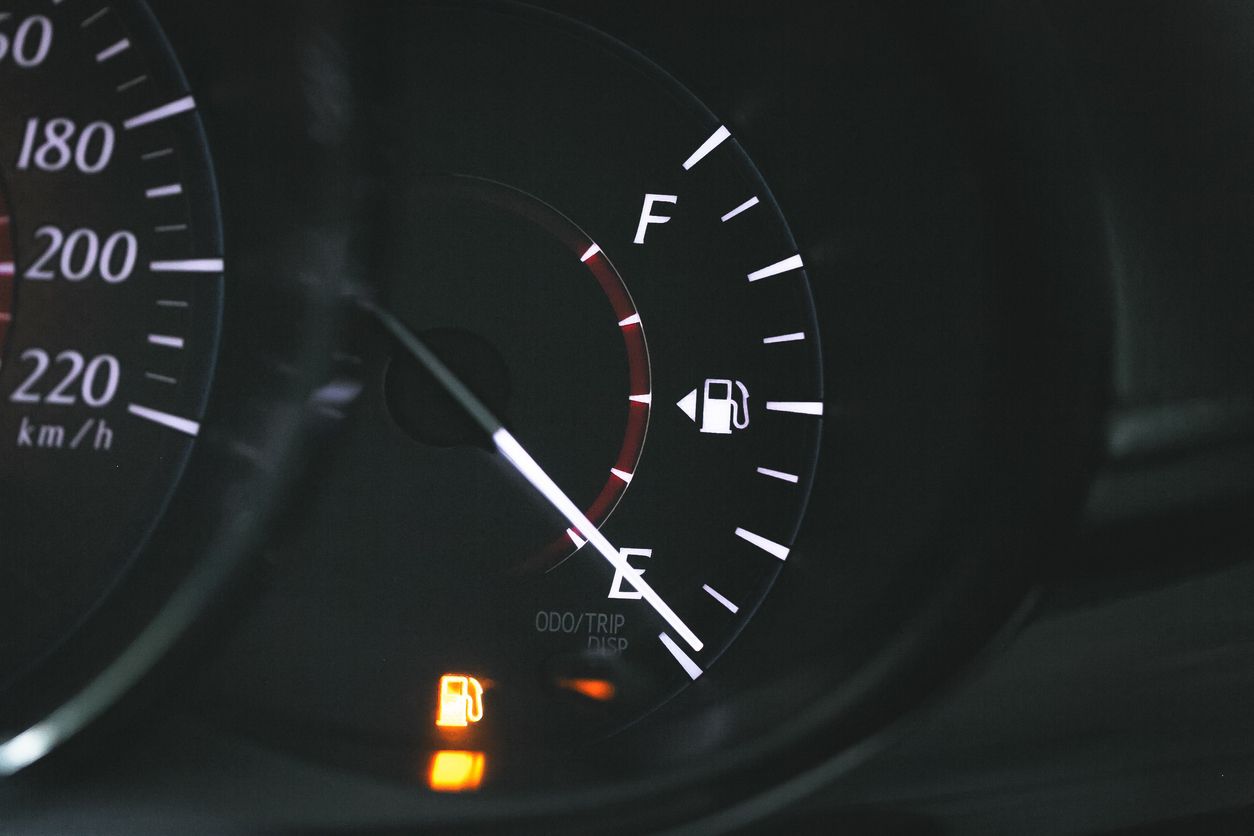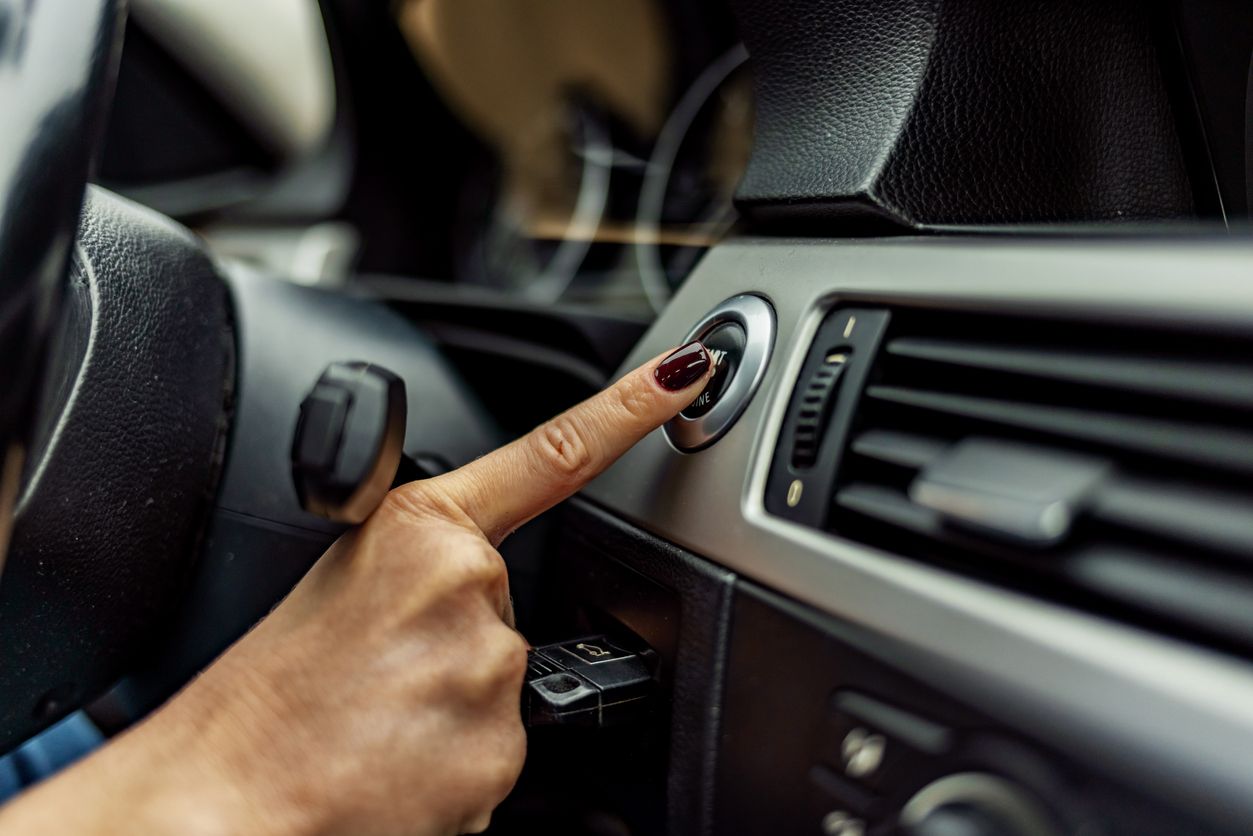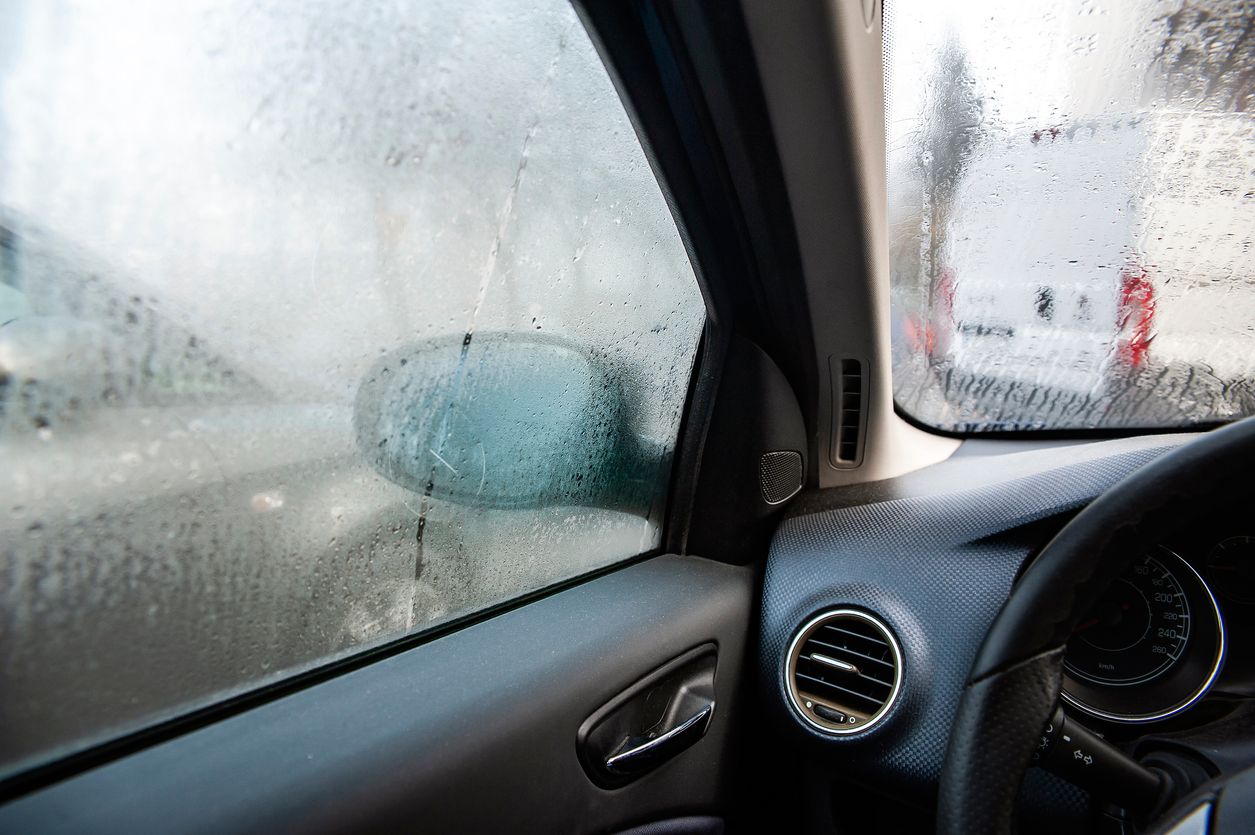Summer is right around the corner, and things are heating up. You hop into your ride, turn the air conditioning to max, and immediately wonder, “Why is my A/C blowing hot air?!” By the end of your commute, it hasn’t gotten any cooler, and you’re sweatier than a snowball in a microwave.
The first step to getting your A/C back in working order is to diagnose the problem, and we’re here to help. Read on to learn about the common failure points of your vehicle’s A/C system, and where to get them repaired or replaced.
What Causes Your Car A/C to Blow Hot Air?
If you find your car A/C not cooling in hot weather, it could be due to a leak in your system, a faulty condenser, or a broken compressor.
1. There May be a Refrigerant Leak
Refrigerant is the lifeblood of your automobile’s A/C system. By compressing, condensing, drying, and evaporating refrigerant, your A/C system uses thermodynamics (though it feels like magic) to make hot air cold. Without refrigerant, your car’s A/C can’t effectively do its job. If your vehicle has developed a refrigerant leak, whether through a loose fitting, a busted hose, or another failed component, you’ll likely be blasted with hot air when the air conditioner is on.
To get your hot A/C blowing cold again, you’ll need to recharge it with refrigerant, but it’s not as simple as topping off the system — you’ll need to identify and fix the leak first. Unfortunately, spotting a refrigerant leak can be difficult since it escapes into the atmosphere rather than collecting in a puddle underneath your car.
You may get lucky and spot some oily residue at the source of the leak. However, you’ll likely need to bring your vehicle to a professional, who will find the leak by diagnosing the system, addressing and fixing the problem, and recharging your A/C with refrigerant.
Firestone Fun Fact: Refrigerants, believe it or not, have been a “hot” topic since the mid-1970s. From catastrophic levels of ozone depletion to international treaties, refrigerant and its alternatives have had quite a colorful history. If you want to gain some insight into how your car’s A/C system works and learn about refrigerant’s juicy backstory in the process, check out our article, “Everything You Need to Know About Your Car’s A/C.”
2. You Could Have a Blocked or Faulty Condenser
To keep your vehicle cool, refrigerant has to absorb heat from the air, and in doing so, turns into vapor. It’s the A/C condenser's job to convert the gaseous refrigerant back into a liquid state, which enables the cycle to continue.
Like your car’s radiator, A/C condensers utilize many thin metal fins to cool down the refrigerant inside. Unfortunately, the intricate, delicate structure that makes A/C condensers so effective also makes them vulnerable to blockages from road dirt and debris or accidental damage.
If your condenser is blocked, it may not be able to cool refrigerant enough and the air will blow warm or hot from the vents. On the other hand, if it has sustained serious damage, it may allow refrigerant to escape into the atmosphere. In either case, the cooling cycle is unable to continue, and your A/C will blow warmer air than it should.
3. Your Compressor Might Be Broken, or Its Clutch Isn’t Engaging
If refrigerant is the lifeblood of your A/C system, the compressor is the heart since its job is to circulate refrigerant through the system. Overheating, lack of lubrication, and low refrigerant levels are all common causes of compressor failure.
Since compressors don’t need to be engaged all of the time, they turn on and off by utilizing a clutch. So if your compressor isn’t running, the compressor clutch or a failed clutch switch could also be the culprit.
What Causes Low or No Airflow Coming from the A/C?
Cool (or maybe not so cool) — now you know a few potential causes for your A/C outputting hot air, but what if your A/C is cooling, but not blowing enough air — or none at all? In that case, you may have a clog in the system, a faulty blower motor, or an issue with your electrical system.
4. Your Air Intake or Cabin Air Filter is Potentially Clogged
Fortunately, if A/C airflow has been reduced, it might be as simple as clearing some leaves out of your ventilation system’s air intake or replacing a dust-packed cabin air filter. On many vehicles, the A/C’s air intake can be found at the base of the windshield under a plastic grate. Check to see if leaves or other debris have fallen behind the grate, and if they have, use a vacuum to suck them out.
If that doesn’t fix the problem, it may be time to have your cabin air filter looked at — especially if you’ve noticed a musty smell coming from your vents. Not only can dirty cabin filters house harmful bacteria, but they can restrict the airflow coming out of your vents. The location of your cabin filter depends on the make and model of your vehicle, but some common areas to check for yours are:
- In the engine compartment near the base of the windshield
- Under the dash
- Behind the glove box
Most cabin filters can be easily replaced at home, but if you need assistance replacing yours, consider visiting your local Firestone Complete Auto Care.
5. The Blower Motor May Not Be Operating Properly
The blower motor is responsible for pushing air through the vents inside your car. So if you have absolutely no airflow coming through your vents, it’s possible that your blower motor or the resistor that controls its speed has failed.
6. There Could Be a Problem in Your Electrical System
Blown fuses, bad relays, and electrical shorts are likely culprits in nearly every system issue of your vehicle, and your A/C is no exception. So if everything else is in good condition, your A/C may not be working due to an electrical problem.
The Dangers of Faulty A/C Systems in Summer
If your car’s A/C has gone out near the end of summer, you should resist the urge to tough it out just a little bit longer. According to the National Highway Traffic Safety Administration, “The temperature inside a car can reach over 115 degrees when the outside temperature is just 70 degrees,” and “rolling windows down or parking in the shade does little to change the interior temperature” of your vehicle.
At that temperature, dehydration becomes a very real concern. Though it may not sound like a big deal, the Mayo Clinic lists dizziness and confusion as common symptoms of dehydration — something you definitely don’t want while driving. And if you drive an electric vehicle, it's important to note that some EVs depend on a properly functioning A/C system to cool the high-voltage battery pack. Without it, there may be lasting effects.
So if your A/C isn’t working, and it’s hot outside, don’t put yourself at risk — bring your vehicle to Firestone Complete Auto Care for A/C repairs and services instead.
Stay Cool With an A/C Performance Check at Firestone Complete Auto Care
With summer on the horizon, driving a car with an A/C cooling issue is the last thing any driver needs. Enjoy a breath of cool air by visiting the professional technicians at your local Firestone Complete Auto Care for car A/C repairs and services. From A/C performance checks to A/C recharges and replacements, we have you covered. Schedule your appointment today.



